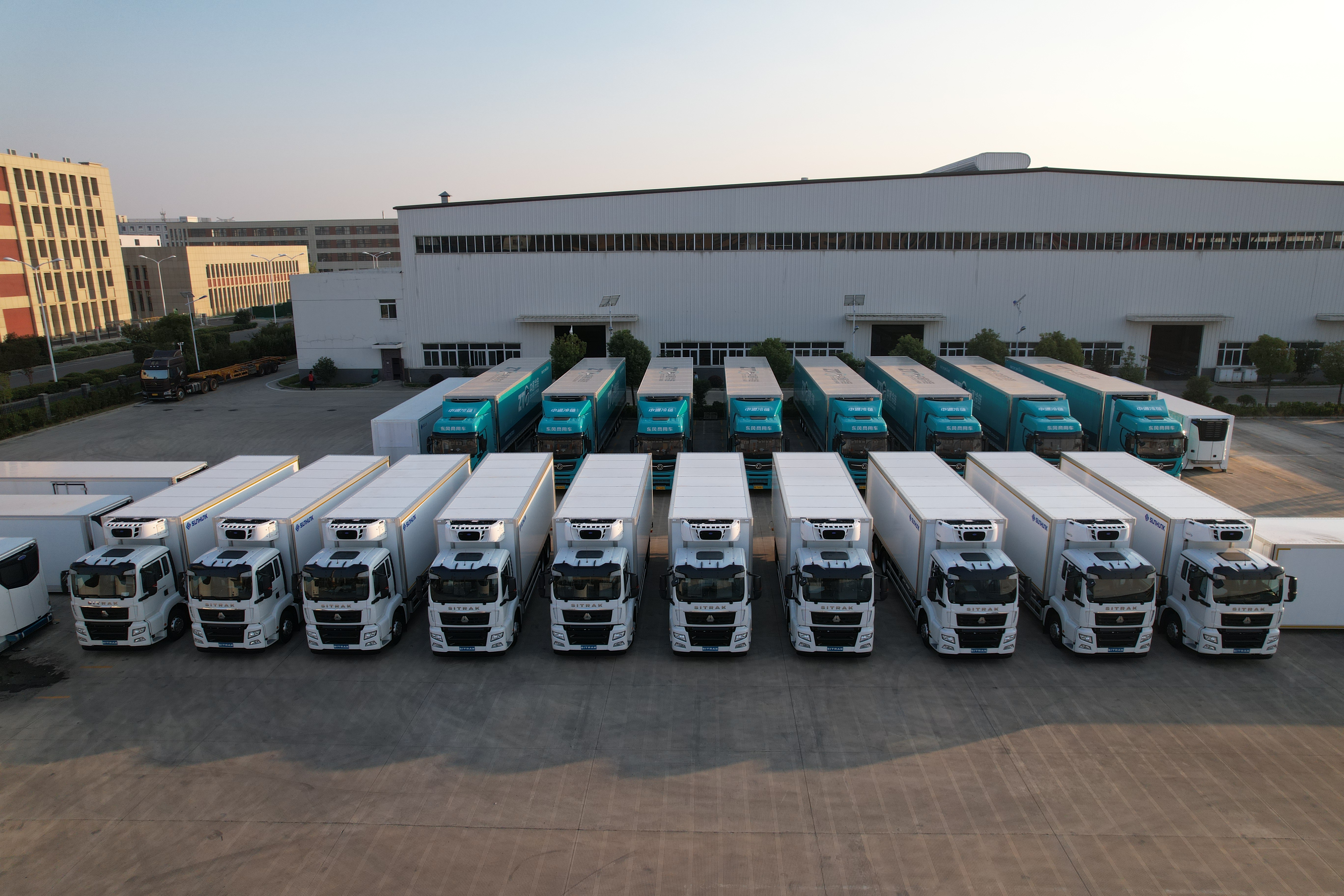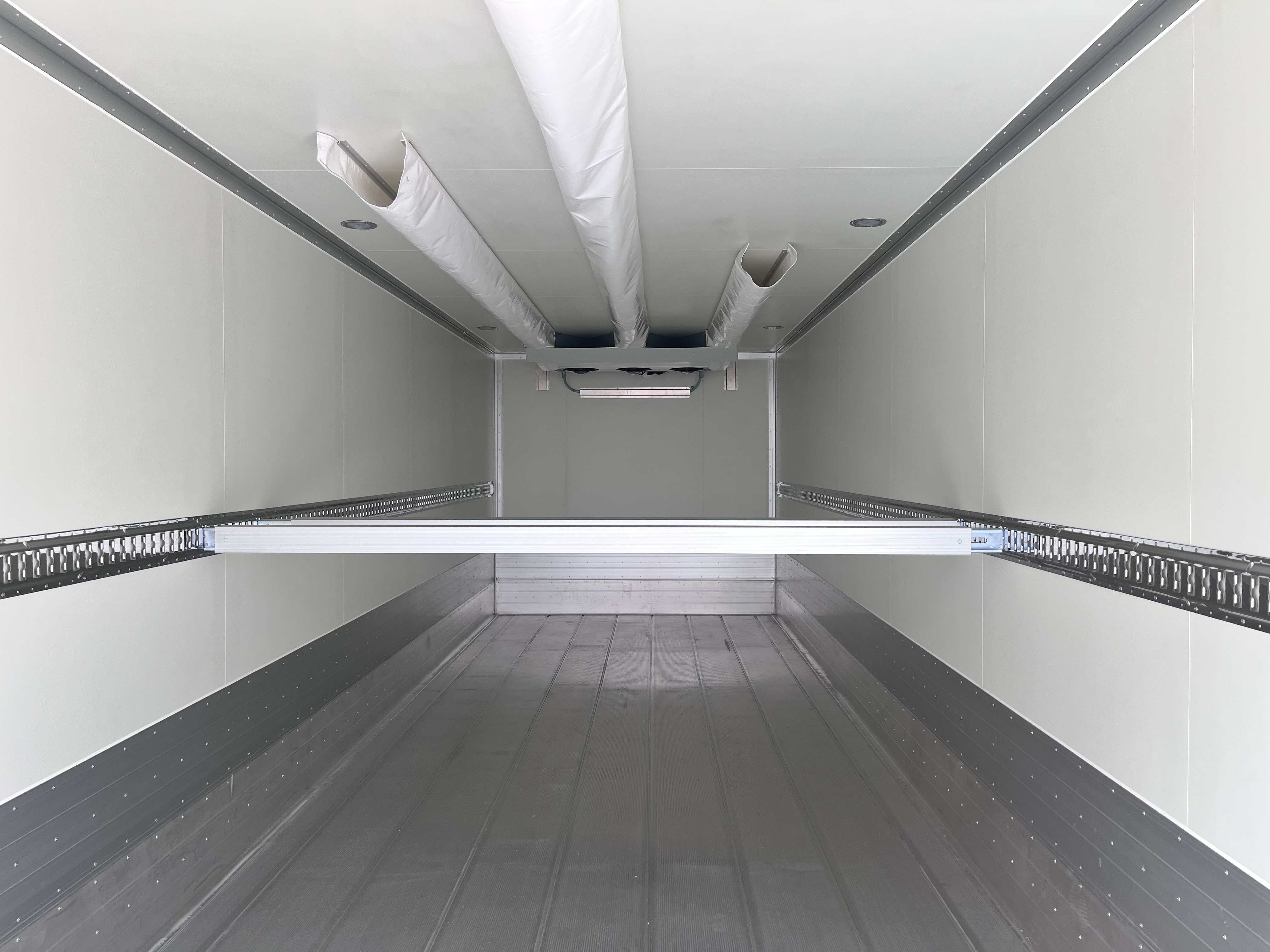- PRODUCTS
- SOLUTION
- SERVICE
- NEWS
- ABOUT US
The safety features of an enclosed refrigerated trailer include temperature control systems (temperature variation within 1°C), emergency braking (reduces braking distance by 30%), anti-slip floor design (reduces accident rate by 50%), and backup power systems (provides power for 8-12 hours).
The temperature control system of a refrigerated box truck is not just about temperature; it is about fine-tuning the perfect amount. This system maintains a transport of cargo within the established temperature range and usually controls temperature differences with an accuracy of ±0.5—1°C. If it surpasses this range, quality losses of cargo products may occur, amounting to hundreds of thousands to millions of dollars, due to chemical parameter changes in transported goods.

In addition to maintaining a consistent temperature, the system is automatic, meaning it will quickly reset the refrigeration system based on temperature changes inside the trailer and return the temperature to the acceptable level. The trailer has several temperature sensors inside, checking environmental temperatures every 100th of a second. If the temperature goes outside the set range, then within 5 seconds, the system reacts by turning on or modifying refrigeration units to prevent excessive warming or cooling. This real-time monitoring can reduce the risk of spoilage by over 90%, ensuring transportation safety.
Industry estimates suggest cold chain transportation temperature control system failures account for around $2 billion in losses a year. For pharmaceuticals, such as high-value vaccines and biological products, they require strict temperature control within 2°C to 8°C. Failure in temperature control could cause irreparable damage. In 2019, a well-known pharmaceutical company lost 500,000 doses of vaccines due to improper temperature control, resulting in $8 million in losses, directly impacting the supply chain with vaccine shortages.
In the safety features of an enclosed refrigerated trailer, the emergency braking system is critical. This system is not only a braking mechanism but also an advanced electronic control system that can respond instantly in emergencies, preventing vehicle rollovers or cargo damage.
The emergency braking system uses an electronic control unit (ECU) to monitor speed, braking pressure, and road conditions in real-time. When an anomaly such as sudden deceleration or loss of trailer balance is detected, braking force is automatically applied in less than 0.2 seconds. This increases the driver’s response time and reduces traffic accidents. Braking distance in refrigerated trailers equipped with emergency braking systems can be reduced by about 30%, significantly enhancing safety.
For instance, a transportation company encountered an emergency braking incident when the driver couldn't brake due to a slippery road. The emergency braking system automatically activated, reducing the vehicle’s speed within seconds and preventing a collision. The system can also work with Electronic Stability Control (ESC), further improving safety. ESC automatically distributes braking force to prevent skidding or loss of control, reducing accidents by over 45%.
In refrigerated trailers, the anti-slip floor design is often overlooked but is essential for ensuring cargo stability. During transportation, especially when loading and unloading, this feature is indispensable. The trailer floor typically supports several tons of cargo, and the anti-slip floor can significantly reduce the risk of sliding or tipping during transit. Industry standards require the surface friction coefficient of the anti-slip floor to be 0.6 or higher to prevent shifting during sharp turns or emergency braking, especially in cold environments where moisture and low temperatures increase slipperiness.
For example, a batch of frozen seafood valued at $300,000 could be completely ruined if the anti-slip floor wasn’t present, as cargo might shift or pile up during bumps in transit, causing physical damage. The anti-slip floor design ensures stability, holding the cargo in place. Moreover, during loading or unloading, anti-slip properties improve personnel safety, especially on slippery surfaces. Statistics show that slippery floors cause 15% of accidents annually, but refrigerated trailers with anti-slip floors reduce these accidents by over 50%.
The anti-slip floor is typically made of wear-resistant rubber or metal-embedded textures that prevent cargo from slipping and withstand low temperatures and high humidity. This ensures safe transportation regardless of season.
The refrigeration system of a trailer usually depends on the vehicle’s power, but power failures or malfunctions during long-distance transportation are not uncommon. The backup power system is typically a backup battery pack or independent generator. When the main power fails, the system starts automatically within seconds, powering the refrigeration system. Industry standards require a qualified backup system to provide continuous power for 8-12 hours after the main power fails to prevent temperature fluctuations.
In a real-world scenario, a logistics company transporting biological products valued at $500,000 experienced vehicle breakdowns in a remote area. Without the backup system, the temperature inside the trailer would have exceeded safe limits. However, the backup power system maintained temperature control for up to 10 hours, preventing significant losses.

The backup system can work with temperature monitoring, allowing remote tracking of temperature fluctuations. If deviations occur, the system immediately alerts shippers to adjust the plan and ensure cargo safety. Without backup systems, annual losses due to power failures are around $150 million, but cold chain vehicles equipped with backup systems can reduce losses by over 70%.